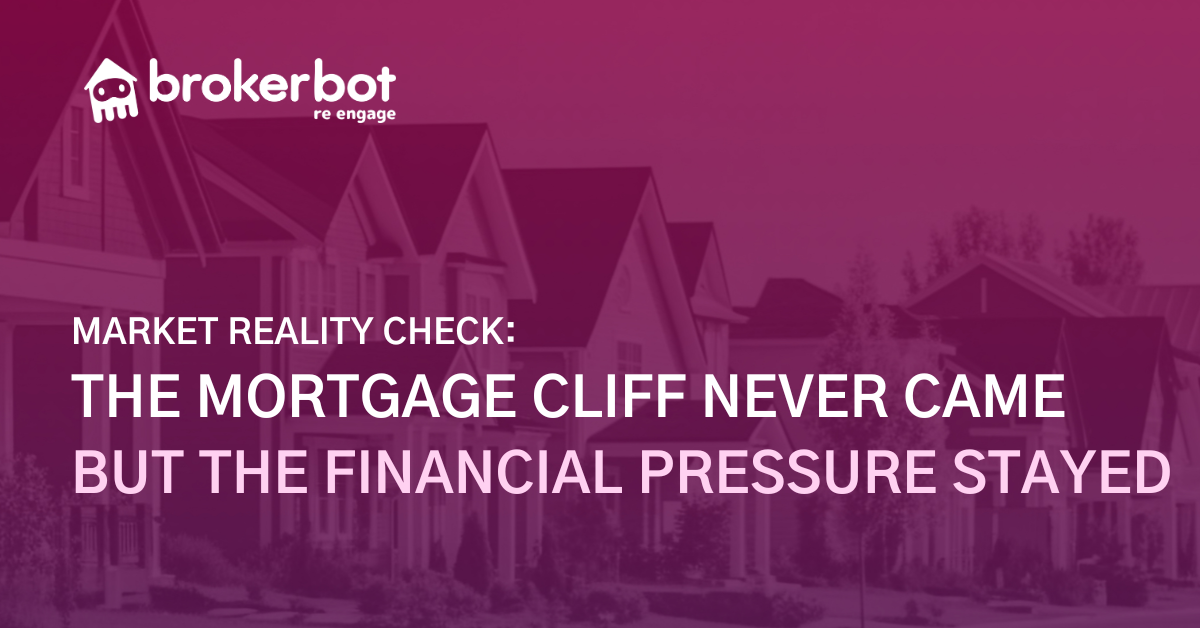The appraisal industry in Canada is facing its toughest period in over a decade, and the numbers don't lie. While everyone's focused on when the housing market will "recover," appraisers are dealing with a harsh reality: the pie has shrunk dramatically, and traditional business models aren't cutting it.
The Perfect Storm Crushing Appraisal Volume
First, let's talk about the elephant in the room: transaction volume has collapsed. Ontario resales, which used to hover between 9,500 and 16,000 units during the 2021-2023 boom, are now stuck in the 4,000-6,000 range. That's not a dip—that's a fundamental shift that's cut purchase appraisals roughly in half.
Second, the refinancing goldmine has dried up. With average prices down 20% from peak and back to 2020 levels, homeowners who used to tap equity like an ATM are now stuck. Many can't even renew their mortgages without bringing cash to the table. Refinance appraisals? Down by an estimated 50% or more.
Third, the investor exodus is real. Remember when every other client was a real estate investor looking to flip or hold rental properties? Those investors have moved mainly to stocks and bonds, where returns are less volatile and don't require dealing with tenant disputes or negative cash flow. The pre-construction condo boom that kept appraisers busy from 2018-2023 has essentially vanished, with many deals failing to close or requiring complex blanket mortgage structures that cut out independent appraisal firms.
The Harsh Math of Market Reality
When you combine these three factors, you're looking at an industry where demand has been cut by 60-70% in many markets. For appraisal firms, this isn't just about weathering a temporary downturn—it's about survival in a fundamentally smaller market.
The old approach of maintaining relationships with multiple broker contacts and hoping for steady, diversified referrals isn't working when there simply aren't enough appraisals to go around. If a broker used to split three assignments between three different firms, there might be only one total now.
Why Technology Isn't Optional Anymore
This is where many appraisal firms are getting it wrong. They're cutting costs, reducing staff, and waiting for "better times." However, the firms that will emerge stronger are those doubling down on technology and client engagement to capture a larger share of the smaller pie.
Enter platforms like BrokerBot. These aren't just fancy client management systems—they're competitive weapons. When a mortgage broker has one appraisal to assign instead of three, who do you think they're calling? The appraiser who sends generic follow-up emails, or the one whose system automatically tracks their deal flow, sends personalized updates, and makes their life easier?
The Loyalty Game Has Changed
Broker loyalty used to be nice to have. Now it's survival. The appraisal firms that are thriving in this environment have shifted from transaction-based thinking to relationship-based systems. They're using:
- Automated engagement tools that keep them top-of-mind without being annoying. When brokers think "appraisal," your name should be the first one that comes to mind.
- Loyalty programs with actual value. Points systems, priority scheduling, or exclusive market insights that make brokers want to send more business your way.
- Service differentiation that matters. Faster turnaround times, better reporting, or digital-first processes that save brokers time and headaches.
The Technology Stack That Actually Works
The most successful appraisal firms are building tech stacks around three core functions:
- Client relationship management that goes beyond contact databases. Systems that track broker preferences, deal patterns, and engagement history to personalize every interaction.
- Process automation that eliminates friction points. Automated scheduling, digital report delivery, and streamlined revision processes that make working with you easier than working with competitors.
- Data insights that provide value beyond the appraisal itself. Market trend analysis, comparable sale insights, or neighbourhood data that positions you as a strategic advisor, not just a service provider.
Stop Competing on Price, Start Competing on Value
Many appraisal firms still don't understand: competing on price is suicide in a smaller market. When volume is down 60%, cutting fees by 10% doesn't help—it just accelerates the race to the bottom.
Instead, the smart play competes for value and convenience. Brokers will pay standard rates (or even premiums) for appraisers who make their lives easier, deliver faster, and provide better service. They'll also send more business to firms that treat the relationship as a partnership rather than a series of transactions.
The Platforms That Get It Right
BrokerBot and similar platforms understand that the appraisal business has become a loyalty game. They're designed around the premise that consistent, automated engagement beats sporadic personal outreach. When a broker gets a weekly market update, deal tracking notification, or priority booking reminder, it's building mental market share that pays off when they have an assignment to distribute.
These tools also provide the analytics to prove ROI. You can track which brokers are generating the most volume, which engagement tactics are working, and where to focus your business development efforts in a data-driven way rather than relying on gut feeling.
The Bottom Line
The appraisal industry's shrinking pie isn't expanding anytime soon. Trade wars, rate uncertainty, and affordability challenges will suppress transaction volumes well into 2026. The firms that survive and thrive will use technology to capture a larger share of what's left.
This isn't about returning to 2021 volumes—those days are gone. This is about building a business model that can generate sustainable revenue in a fundamentally smaller market by being indispensable to the brokers who remain active.
The question isn't whether you can afford to invest in engagement technology and loyalty systems. The question is whether you can afford not to.





.png)
